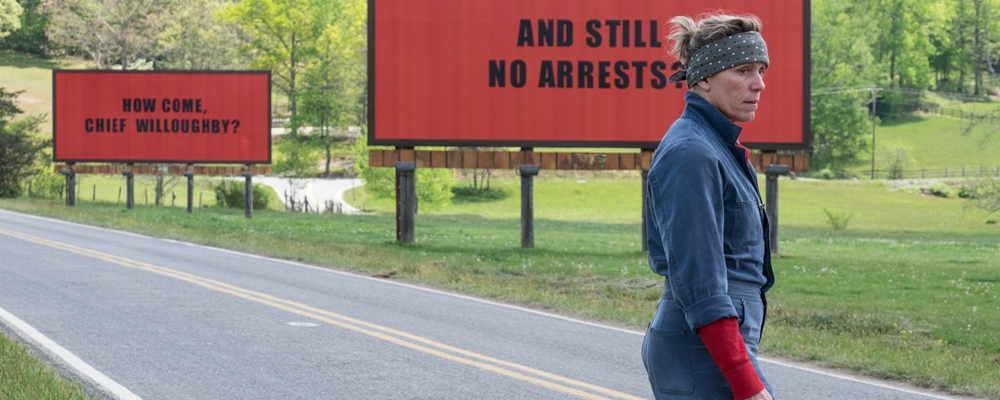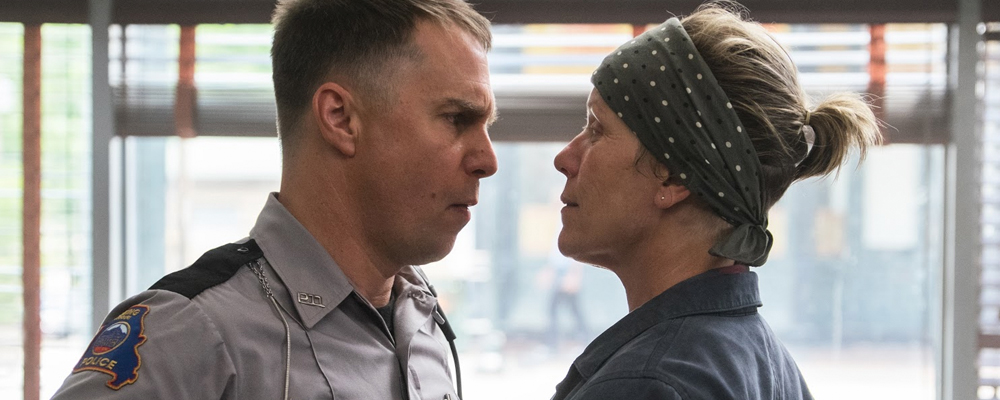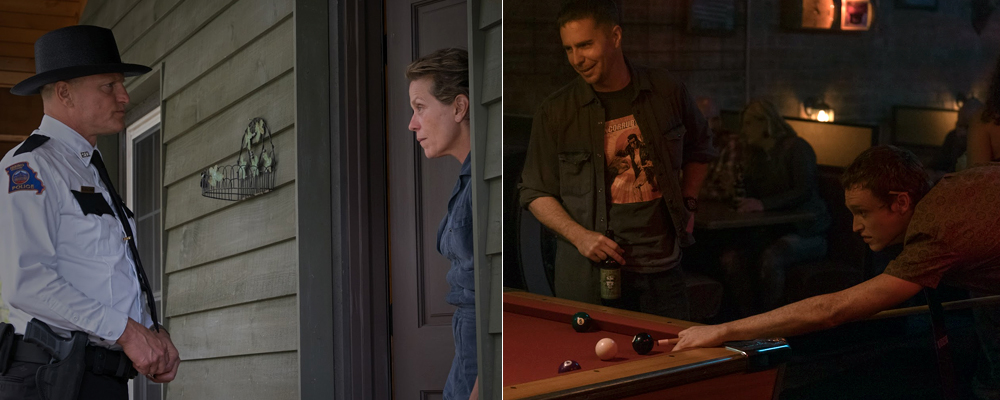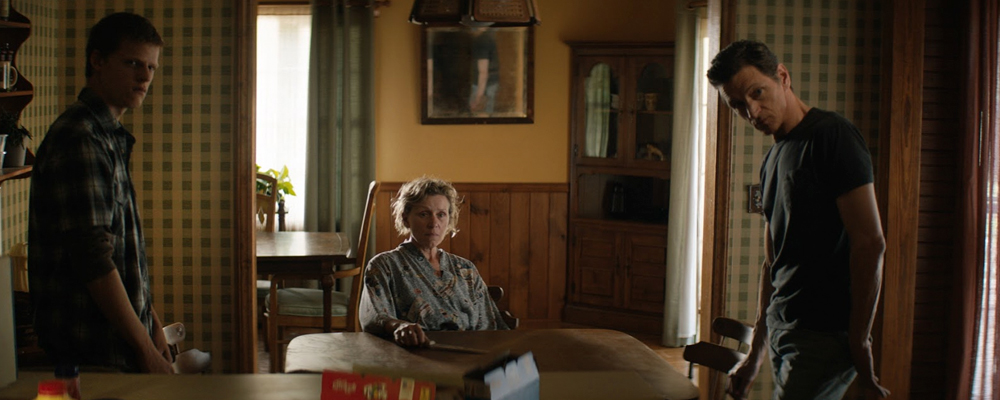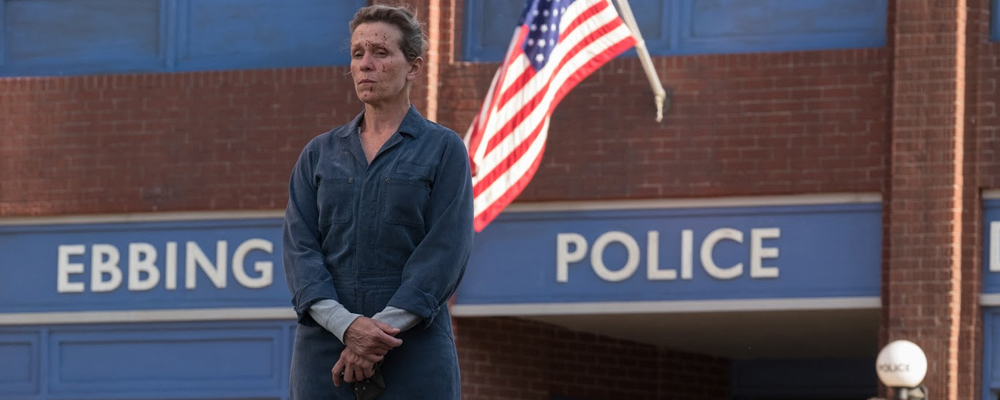‘Three Billboards Outside Ebbing, Missouri’ Offers Powerful Drama and Biting Humor
Alci Rengifo
“Three Billboards Outside Ebbing, Missouri“ is one of those special films where humor and drama combine to make a powerful experience. It creates a world where we get to know every character so well that we truly care about each and every one of them by the end. It touches on contemporary issues with a fierce humanity and yet makes us laugh with biting dark humor. Written and directed by Martin McDonagh, that Irish poet of quirk and violence, this is his masterpiece and one of the year’s great films. For lead actress Frances McDormand this is a towering achievement, with a performance of grace and rage.
McDormand plays Mildred Hayes, the mother of a girl named Angela (Kathryn Newton), who was brutally raped and killed without the attacker ever being caught. Months after the tragedy Mildred comes across three empty billboards while driving through the green, rural heartland of her town. She buys ad space on the billboards and posts a message asking local sheriff William Willoughby (Woody Harrelson) why justice has not been served. The act immediately divides the town. Willoughby is respected for his tough guy attitude, even if his police force is notoriously corrupt. Willoughby’s second in command, officer Dixon (Sam Rockwell), is a racist, infantile hothead who could care less about throwing someone out a window. Mildred finds herself facing intimidation and harassment from all corners, even the town dentist. Her son Robbie (Lucas Hedges) feels the heat at school and it gets worse when Mildred’s ex, Charlie (John Hawkes), returns with his 19-year-old new girlfriend and pressures Mildred over the billboards. But as Mildred pushes on with her campaign, secrets start to come out, social conflict rises and someone might just get close to solving the murder case at the center of it all.
McDonagh’s films have always been rousing performances of dark humor. His 2008 breakthrough “In Bruges” was a hilarious take on the Irish mob that brushed aside political correctness. His 2012 “Seven Psychopaths” continued in this style. But “Three Billboards Outside Ebbing, Missouri” is something else, something new. Here the humor is wild and ever so black, but used to convey very serious themes. In one scene Mildred is arrested and asks Dixon how “nigger beatings” are going and Dixon clarifies that police no longer use that slur, instead they use “people of color.” There is a moment where the local priest tries to persuade Mildred to take down the signs and she hits him with a speech about church hypocrisy and pedophilia that is masterful in its brutality. Throughout the script there is a cadence to the cuss words in the dialogue where they build a special rhythm and make the dialogue both funny but direct. The violence too has a special eloquence to it. Mildred drills a dentist’s thumb, kicks someone in the crotch, and isn’t shy about calling an officer “f—k head.” But it’s written and performed with a heroic sense of determination. Considering what happened to her daughter, we can’t blame Mildred and even admire her courage. There is an underlying theme here about violence in the American system and its social fabric. Race, police brutality, and rural culture are handled with the finesse of good literature.
But there are moments of great drama and pure emotional power in this unique film. Some scenes are full of unbearable heartbreak as Mildred pushes on to seek justice. In one scene she remembers her final conversation with Angela and the dialogue is full of that sense of words we wish forever we could take back. A character’s suicide is narrated through a final letter with a brilliant interplay of tender humor and emotion. The moment of the gunshot is almost as poetic as anything by William Faulkner or Hemingway. Two scenes in particular show McDonagh’s command of his material. First there is a moment where Dixon gets drunk and goes on a rampage. The scene is staged in a way that could be funny, but it’s actually cringe-inducing in the way it shows the abuse of power going on. Then there is a moment in a bar where a vile character describes an incident in such a way that provokes sheer anger and despair. Few directors can produce material like this and make it work.
This is also a visually elegant film. McDonagh’s movies usually have a rough, edgy look, but here he goes for wider shots where the Missouri landscape becomes a green and beautiful backdrop for dark happenings and hurting personalities. One scene where Mildred comes across a deer as she lays flowers where he daughter died is both touching and evocative. The score by Carter Burwell has a folk atmosphere and fuels an undercurrent of intensity throughout the movie.
Now let’s discuss this film’s greatest feature, its characters. McDonagh has written them with such vivid clarity that by the end we feel at home in this town. Like the best films of Robert Altman, McDonagh develops the world of his story to the point where we feel immersed. Mildred is a powerful creation. McDormand plays her like a force of nature, but with the complexity of a steel personality hiding real fear underneath. It will be a crime if she does not receive a Best Actress Oscar nomination. Harrelson’s sheriff is not so much a villain as a boss stuck in an unfixable situation. Sam Rockwell’s Dixon is one of the year’s best supporting roles. A fool in a uniform, oblivious to his own prejudices, he stomps around like a slob who would be loveable if he didn’t have so many toxic habits. Yet all of these characters evolve in interesting ways, where they are not so black and white. One great supporting role, it must be said, belongs to Peter Dinklage, who plays a small car salesman named James hopelessly crushing on Mildred. During a dinner scene he delivers one of the film’s great comic lines.
“Three Billboards Outside Ebbing, Missouri” is one of those great films that never strikes a false note. We care for the character’s quest and are stirred by the story’s underlying themes. It’s one of those films that understands the mingling of suffering and humor in life, and moves us through its honesty and eloquence. This film is a special achievement.
“Three Billboards Outside Ebbing, Missouri“ opens in select theaters Nov. 10

